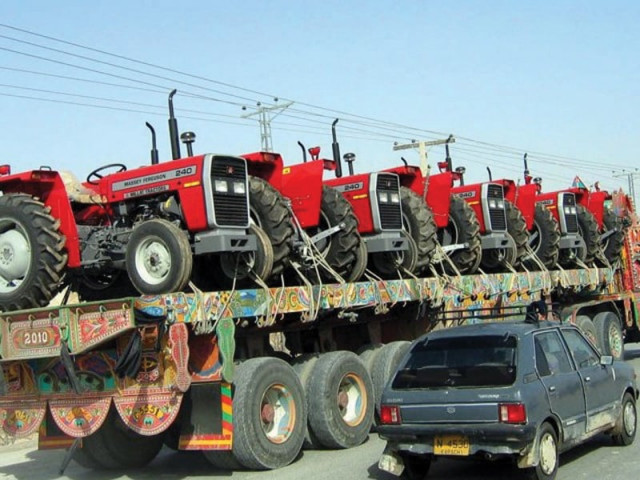
The price of tractors has also gradually increased. For instance, Millat Tractors, which is the largest manufacturer, raised the price of its Messy Ferguson machines by 35% between financial years 2011 and 2015. But a look at the overall number of units sold tells an entirely different story.
Tractor sales have actually plunged 34% to 46,800 units in 2014-15 from a high of 71,512 in 2009-10. Although sales picked up in the past 12 months, depression in commodity price of major and small crops has cast doubts over substantial recovery.
Shahid Hussain, CEO of Al-Ghazi Tractors - which makes the New Holland products in the country and is the second largest manufacturer - insists the company has not booked unjustified profits.
“We have been tightening our belts all along. In any case, our customers and the farmers are not concerned with our profits,” he said, adding that the price of tractors in neighbouring countries is higher.
Over the years, the two tractor makers have indigenised almost all manufacturing, and helped establish network of 200 vendors who in turn are employing thousands of people.
Quality issue
But recently Federal Minister for National Food Security and Research Sikandar Hayat Bosan complained that the quality of Pakistan-made tractors was not up to par. He even threatened to allow imports if the issue was not addressed.
Hussain says such a move would be disastrous. “We have so many vendors who, with us, have worked very hard in building this industry. I don’t see ‘import’ as a solution. This is 30 to 35 years of effort gone into localisation.”
He said the industry was open to discussions and was willing to address any specific concern regarding quality.
“You can still find a 20-year old tractor being used to plough land.”
Sale of tractors also depends on government subsidies. A package was announced in June but both Punjab and Sindh governments have yet to set aside money for the schemes.
Hussain said he was also waiting for an update on the matter and hoped the provincial governments would implement it soon.
Use of farm implements in Pakistan is minimal, which has hampered agricultural growth. Tractors help cut unnecessary cost of manpower and bring more land under cultivation, according to the industry.
But private banks are generally reluctant to take exposure towards small farmers when it comes to agricultural machinery, especially in the absence of official guarantees and collateral.
Despite the fact that more loans are being dispersed among farmers every year, most of that goes towards financing purchase of seeds and a negligible sum is earmarked for farm implements like tractors.
Zarai Taraqiati Bank Limited (ZTBL) alone supports the industry as 25% to 30% of tractors are sold on the basis of loans.
AL Ghazi Tractors is in talks with a few private banks to explore the prospects of penetrating the market, said Hussain.
However, a lot will depend on commodity prices in the coming months. “I don’t have a crystal ball to predict what the situation will be but agriculture is cyclic; when crop is good then farmers have disposal income to spend on tractors.”
“Right now, however, the market is depressed,” he noted.
spillover
Tractor market oversaturated
Most tractors sold are used for transportation instead of cultivating land, says Asif Sharif, a farmer by profession and member of the board of ZTBL.
“The market is already saturated. Farmers are using it for travelling and to have a side income,” he said. “We have never bothered to teach farmers how to use farm implements and we are paying the price.”
He said as the stocks of wheat, rice and other crops pile up and farmers struggle to get the right price, the reality about high cost of production was finally striking home.
“Our resource-less farmers are in direct competition with those from Australia, Europe and the US where modern techniques have been used to drastically cut cost,” Sharif added.
While training farmers is a long process, the government could take some immediate steps to counter the situation.
Published in The Express Tribune, September 10th, 2015.
Like Business on Facebook, follow @TribuneBiz on Twitter to stay informed and join in the conversation.
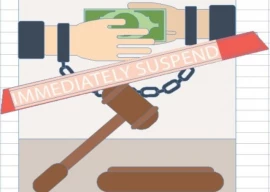
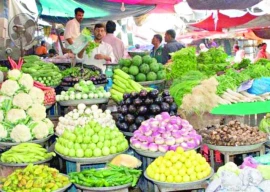
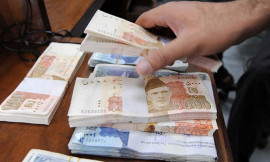
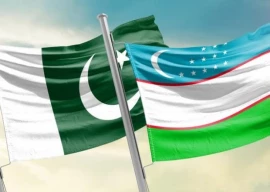
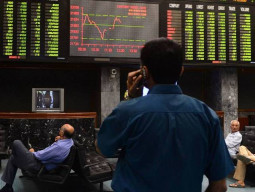






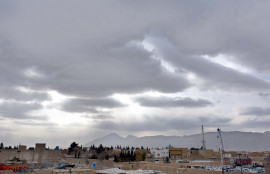






COMMENTS
Comments are moderated and generally will be posted if they are on-topic and not abusive.
For more information, please see our Comments FAQ